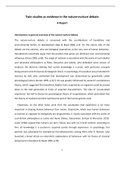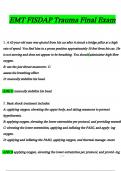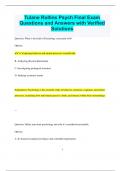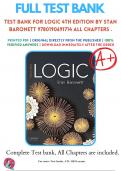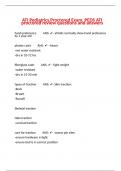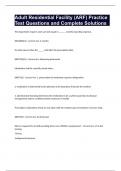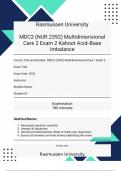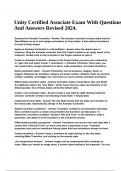Other
Psychology Report- Twin studies as evidence in the nature-nurture debate
- Module
- Introduction to psychology
- Institution
- University Of The Highlands And Islands (UHI)
The present short report consists of three sections: 1 general overview of the nature-nurture debate in psychology, 2- twin studies cited in favour of genetic influence, 3- some weaknesses of the twin approach. Level of report: 7 (UK), Referencing style: APA
[Show more]
